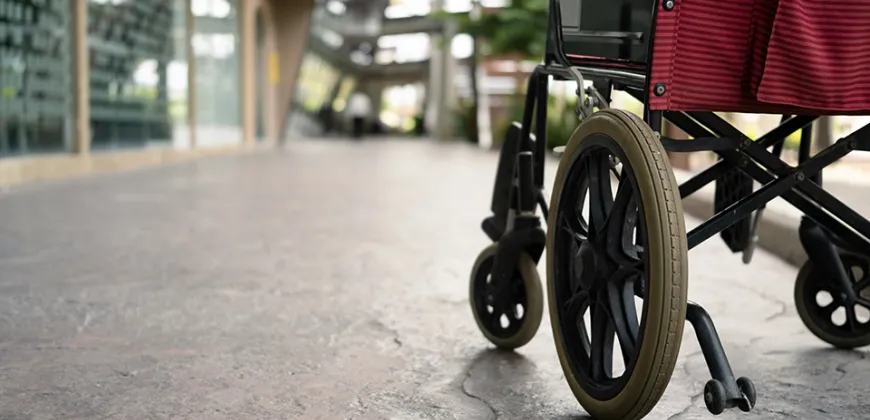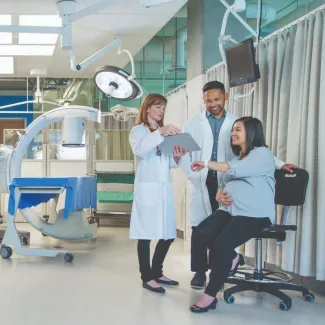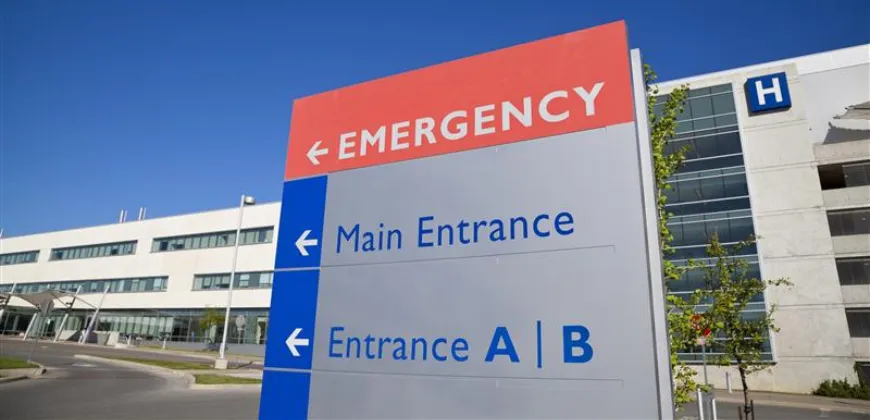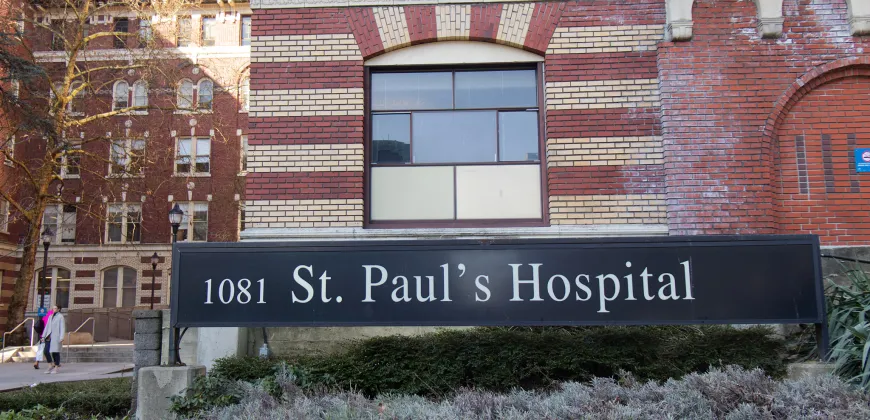Designing Accessibility: MHLP Clinical Education Practicum at St. Paul’s Hospital

MHLP in Clinical Education student Yasmin Mohammadkhani completed her practicum with a team at St. Paul’s Hospital that was responsible for ensuring the design of the new hospital reflects the accessibility needs of patients and health-care teams.
Tell us about your professional background.
I worked in the Heart Centre at St. Paul’s Hospital in Vancouver for eight years. I have always been interested in both health care and education, and I wanted to move into leadership positions. However, I recognized that I didn’t have the same skill set as other leaders I’ve respected. When I learned about the MHLP in Clinical Education I realized it could help me reach my professional goals because it combined my interests in health care, education and leadership.
What was your practicum position?
Clinical Education students complete a practicum, and I was thrilled to get a position as Clinical Lead Assistant on a newly formed team looking at the proposed designs of the new St. Paul’s Hospital through the lens of accessibility. The team is responsible for ensuring that the design of the new hospital aligns with the needs of patients and health-care teams. My role involves helping with team formation and management, researching the best evidence-based practice, and operationalizing the definition of accessibility within the context of a health-care setting.
What aspects of accessibility is the team considering?
We want to make sure the new hospital offers a safe, welcoming place for all patients and makes it easy for them to access services they need. This means looking at the physical environment to ensure the very basics are met – for example, so that individuals in wheelchairs or who have visual or hearing impairments are able to find their way around and access services and care. We’re also looking at other ways to make patients more comfortable. Many people experience short-term dementia after surgery, which can make them disoriented or lose their sense of place if they wake up in an unfamiliar room. That can be minimized if you use a consistent layout for all hospital rooms.
How else are you trying to make sure the design reflects patients’ needs?
Our team is going beyond physical accessibility to look at other issues. Many people accessing care at St. Paul’s do not speak English as a first language. So we’re looking at implementing systems like on-demand translation services. Another example is incorporating a family room for First Nations individuals so that their visiting family and friends have a room to gather and practice rituals. The list is long and we are in the process of brainstorming possibilities.
Where are things at in the overall design process?
The new hospital is set to open in 2027. It’s currently in the early design phase, which is why this work is so important. Many different clinical teams are looking at the design and reviewing it through the lens of their particular expertise. Ultimately, this will ensure that the design best meets the needs of health-care providers and patients.
Did your MHLP courses prepare you for the work you did in the practicum?
Absolutely! MHLP students take business classes alongside students in the Master of Engineering Leadership program. These classes require a lot of group work, and collaborating with engineers on course projects has enabled me to see issues from new perspectives. The team I’m working with at St. Paul’s is very diverse, and my background in the MHLP has prepared me well to be part of a multidisciplinary group. The clinical education classes have also been great. Many of these courses have covered topics relating to team forming, goal setting and achieving goals within a variety of clinical settings – and this has helped me in my role on the Clinical Lead team.
Anything else you want to add about the MHLP?
This has been the best educational experience. We’ve covered a lot of material, and it’s been very validating for me to learn more about areas where I’ve had a lot of questions throughout my working career – questions I might not have had the knowledge or courage to bring forward. For anyone who wants to gain that next level of understanding or be in a leadership position – regardless of their formal job title – I can’t recommend this program enough.



